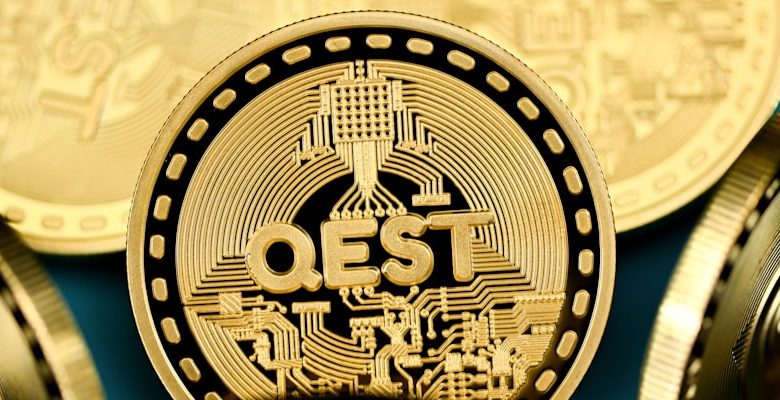The Rise of Decentralized Exchanges in the DeFi Ecosystem

- Understanding the concept of decentralized exchanges
- The advantages of decentralized exchanges over centralized ones
- Key players in the DeFi ecosystem
- Challenges faced by decentralized exchanges
- Regulatory considerations for decentralized exchanges
- The future of decentralized exchanges in the financial world
Understanding the concept of decentralized exchanges
Decentralized exchanges (DEX) are a crucial component of the expanding DeFi ecosystem. Unlike centralized exchanges, DEXs operate without a central authority, allowing users to trade directly with one another using smart contracts. This peer-to-peer trading model offers increased security, transparency, and privacy compared to traditional exchanges.
One of the key benefits of decentralized exchanges is that they eliminate the need for intermediaries, such as a third-party custodian, to hold users’ funds. Instead, traders retain control of their assets at all times, reducing the risk of hacks or theft. Additionally, DEXs enable users to trade a wide range of tokens without having to go through a lengthy listing process, promoting greater liquidity and accessibility in the market.
Furthermore, decentralized exchanges facilitate cross-chain trading, allowing users to swap tokens across different blockchains seamlessly. This interoperability is essential for the growth of the DeFi ecosystem, as it enables users to access a diverse range of assets and services without being limited to a single blockchain network. As a result, DEXs play a vital role in driving innovation and fostering collaboration within the decentralized finance space.
Overall, understanding the concept of decentralized exchanges is crucial for navigating the evolving landscape of DeFi. By embracing the principles of decentralization, trustlessness, and self-custody, users can take full advantage of the benefits that DEXs offer in terms of security, accessibility, and innovation. As the DeFi ecosystem continues to mature, decentralized exchanges are poised to play an increasingly prominent role in shaping the future of finance.
The advantages of decentralized exchanges over centralized ones
Decentralized exchanges offer several advantages over centralized ones, making them increasingly popular in the DeFi ecosystem. One of the main benefits of decentralized exchanges is the enhanced security they provide. Unlike centralized exchanges, which store users’ funds in a single location, decentralized exchanges allow users to retain control of their assets at all times. This reduces the risk of hacks and theft, as there is no central point of failure.
Another advantage of decentralized exchanges is their transparency. Transactions on decentralized exchanges are recorded on a public blockchain, making them easily verifiable by anyone. This ensures that trading activity is fair and cannot be manipulated by exchange operators. In contrast, centralized exchanges often lack transparency, leading to concerns about market manipulation and insider trading.
Decentralized exchanges also offer greater privacy for users. Because users do not need to provide personal information to trade on decentralized exchanges, their identities are better protected. This is in stark contrast to centralized exchanges, which often require extensive KYC/AML procedures that can compromise users’ privacy.
Key players in the DeFi ecosystem
The decentralized finance (DeFi) ecosystem is comprised of various key players that contribute to its growth and innovation. These players include:
- Decentralized exchanges (DEXs): DEXs play a crucial role in enabling peer-to-peer trading of digital assets without the need for intermediaries. Popular DEXs such as Uniswap, SushiSwap, and PancakeSwap have gained significant traction in the DeFi space.
- Liquidity providers: Liquidity providers supply assets to DEXs to facilitate trading and earn returns in the form of trading fees and rewards. They play a vital role in ensuring the smooth functioning of DeFi platforms.
- Automated market makers (AMMs): AMMs are algorithms that determine asset prices based on supply and demand. They enable seamless asset swaps on DEXs and contribute to the efficiency of decentralized trading.
- Decentralized lending platforms: Platforms like Compound and Aave allow users to borrow and lend assets in a trustless manner. These platforms provide opportunities for users to earn interest on their holdings and access liquidity.
- Oracle providers: Oracle networks such as Chainlink and Band Protocol supply external data to DeFi applications, ensuring the accuracy and reliability of smart contract operations. They play a critical role in connecting blockchain networks with real-world data sources.
These key players work together to create a vibrant and decentralized financial ecosystem that offers users greater control over their assets and financial activities. As DeFi continues to evolve and expand, these players will play an essential role in shaping the future of decentralized finance.
Challenges faced by decentralized exchanges
Decentralized exchanges have gained popularity in the DeFi ecosystem due to their emphasis on security and privacy. However, they also face several challenges that need to be addressed for wider adoption and efficiency in the market.
One of the main challenges faced by decentralized exchanges is liquidity. Unlike centralized exchanges that often have large pools of liquidity, decentralized exchanges struggle to attract enough trading volume to ensure smooth transactions. This can lead to issues such as slippage, where the price of an asset can change significantly between the time a trade is initiated and when it is executed.
Another challenge is the user experience. Decentralized exchanges can be more complex and intimidating for new users compared to their centralized counterparts. Issues such as wallet integrations, transaction fees, and the need to interact with smart contracts can create barriers to entry for less tech-savvy individuals.
Security is also a major concern for decentralized exchanges. While they are touted for their security features, they are not immune to hacks and vulnerabilities. Smart contracts, in particular, have been targeted by hackers in the past, leading to significant losses for users.
Regulatory uncertainty is another challenge that decentralized exchanges face. As they operate in a relatively unregulated environment, they run the risk of facing regulatory crackdowns or compliance issues in the future. This can hinder their growth and adoption in the mainstream financial industry.
Overall, while decentralized exchanges offer many benefits to users, they also face several challenges that need to be overcome for them to reach their full potential in the DeFi ecosystem. By addressing issues such as liquidity, user experience, security, and regulatory concerns, decentralized exchanges can continue to grow and evolve in the ever-changing landscape of decentralized finance.
Regulatory considerations for decentralized exchanges
Decentralized exchanges (DEXs) are gaining popularity within the decentralized finance (DeFi) ecosystem due to their innovative approach to trading digital assets. However, as DEXs continue to grow in number and usage, regulatory considerations become increasingly important.
One of the key regulatory considerations for DEXs is compliance with anti-money laundering (AML) and know your customer (KYC) regulations. Ensuring that users are properly identified and transactions are monitored for suspicious activity is crucial to prevent illicit financial activities on decentralized platforms.
Another regulatory concern for DEXs is the enforcement of securities laws. In some jurisdictions, trading certain digital assets may be classified as securities, which could subject DEX operators to legal consequences if not properly addressed.
Additionally, tax compliance is an important aspect of regulatory considerations for DEXs. Users and operators must be aware of their tax obligations related to trading digital assets on decentralized platforms to avoid potential legal issues.
Overall, while decentralized exchanges offer numerous benefits such as increased privacy and security, regulatory compliance remains a significant challenge. As the DeFi ecosystem continues to evolve, finding the right balance between innovation and regulatory requirements will be essential for the long-term success of DEXs.
The future of decentralized exchanges in the financial world
Decentralized exchanges (DEXs) are gaining traction in the financial world as more investors seek alternatives to traditional centralized exchanges. DEXs offer a secure and transparent way to trade digital assets without the need for a middleman. This peer-to-peer trading model is made possible by blockchain technology, which ensures that transactions are executed directly between users.
One of the key advantages of DEXs is their resistance to censorship and control by third parties. This decentralization ensures that users have full control over their funds and can trade without the risk of interference from outside parties. Additionally, DEXs are often more cost-effective than centralized exchanges, as they eliminate the need for intermediary fees.
As the DeFi ecosystem continues to expand, decentralized exchanges are expected to play a crucial role in shaping the future of finance. With the rise of blockchain technology and smart contracts, DEXs are becoming increasingly sophisticated and user-friendly. This trend is likely to attract more investors to the world of decentralized finance, driving further growth and innovation in the industry.



